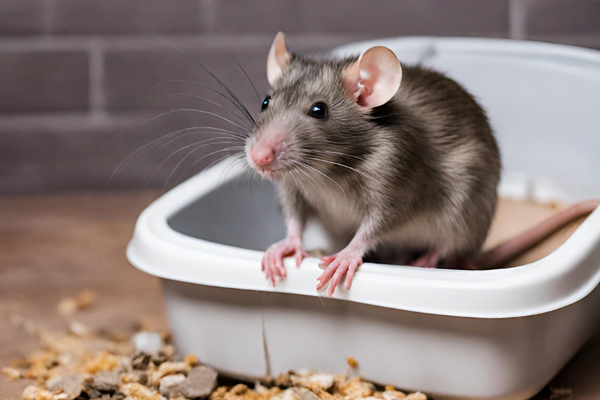Table of Contents
Training a pet rat can be a fun and rewarding experience. Rats are intelligent, social animals that can learn a variety of tricks and behaviors. The best tips for training a pet rat involve patience, consistency, and positive reinforcement. In this guide, we provide seven essential tips to help you effectively train your pet rat and strengthen your bond with them.

Top Tips for Training a Pet Rat
1. Start with Trust-Building Exercises
Before beginning any training, it’s crucial to build trust with your pet rat. Spend time handling and interacting with your rat to make them comfortable with you. Gentle petting, hand-feeding treats, and speaking softly can help establish a bond. For more on trust-building exercises, visit The Spruce Pets Bonding Tips.
2. Use Positive Reinforcement
Positive reinforcement is key to successful rat training. Reward your rat with treats, praise, or gentle petting when they perform a desired behavior. This encourages them to repeat the behavior. Use small, healthy treats like pieces of fruit or yogurt drops for training sessions. For more on positive reinforcement, see PetMD Positive Reinforcement.
3. Keep Training Sessions Short
Rats have short attention spans, so keep training sessions brief and engaging. Aim for sessions of 5-10 minutes, multiple times a day. This helps prevent your rat from becoming bored or overwhelmed. For tips on structuring training sessions, visit Petfinder Rat Training Tips.
4. Teach Basic Commands First
Start with simple commands like “come” and “follow.” Use a treat to guide your rat into the desired behavior and say the command as they perform it. Repeat this process until your rat responds reliably. Basic commands provide a foundation for more advanced tricks. For more on teaching commands, visit WikiHow Rat Training.
5. Introduce Advanced Tricks Gradually
Once your rat has mastered basic commands, you can introduce more complex tricks like spinning, jumping through hoops, or fetching small objects. Break down each trick into small steps and use positive reinforcement to guide your rat through each stage. For more on advanced tricks, see PetHelpful Rat Tricks.
6. Be Patient and Consistent
Training takes time and patience. Be consistent with your commands and rewards, and avoid getting frustrated if your rat doesn’t learn a trick immediately. Celebrate small successes and keep a positive attitude throughout the training process. For more on maintaining patience, visit Rat Fan Club Training Tips.
7. Ensure a Stimulating Environment
A stimulating environment is essential for your rat’s mental and physical well-being. Provide plenty of toys, climbing structures, and opportunities for exploration. A happy, engaged rat is more likely to be responsive during training sessions. For tips on creating an enriching environment, see The Spruce Pets Rat Enrichment.
Conclusion on Tips for Training a Pet Rat
Training a pet rat can be a rewarding and enjoyable experience with the right approach. By following these essential tips for training a pet rat, you can teach your rat a variety of tricks and behaviors while strengthening your bond. Remember to be patient, consistent, and always use positive reinforcement. For more advice on pet rat care, check out our Pet Care Guide.
FAQs on Tips for Training a Pet Rat
How long does it take to train a pet rat?
The time it takes to train a pet rat varies depending on the rat’s age, temperament, and the complexity of the tricks. With consistent training, most rats can learn basic commands within a few weeks.
Can older rats be trained?
Yes, older rats can be trained. While younger rats may learn more quickly, older rats can still be taught new tricks with patience and consistency.
What treats are best for training rats?
Small, healthy treats like pieces of fruit, vegetables, yogurt drops, or commercially available rat treats work well for training. Use treats that your rat finds motivating but won’t upset their diet.
How often should I train my rat?
Short training sessions of 5-10 minutes, multiple times a day, are ideal. This keeps your rat engaged without overwhelming them.
What should I do if my rat doesn’t respond to training?
If your rat doesn’t respond to training, ensure they are comfortable and not stressed. Go back to building trust and keep training sessions short and positive. Be patient and try different treats or training methods.
Is clicker training effective for rats?
Yes, clicker training can be effective for rats. The clicker serves as a consistent marker for correct behavior, followed by a reward. This method can enhance communication and accelerate learning.











